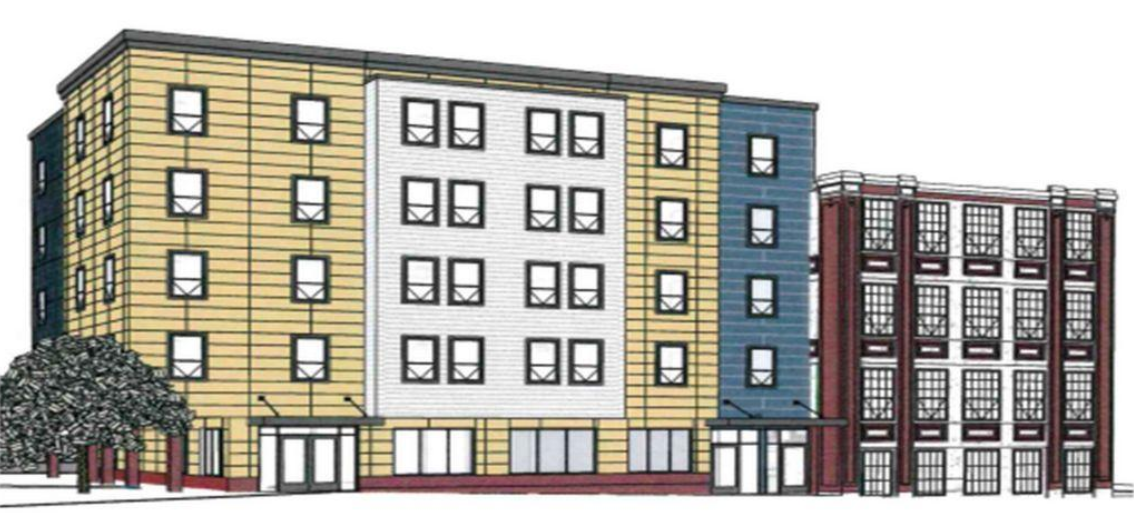Headlines: The latest on vacant, abandoned, and deteriorated properties – August 3, 2019
August 3, 2019

This is our twice-monthly round-up of news stories covering challenges related to vacant, abandoned, and deteriorated properties — and how communities are transforming these properties into assets. (The headlines are for informational purposes only; inclusion does not indicate endorsement.) If you’d like to get this round-up in your inbox, join our email list!

“Tree of Life” mural in Huntington Park in Philadelphia. (Credit: Tony Juliano, flickr, 2019)
National
Study suggests gentrification has an upside. Housing advocates aren’t yet convinced
“[Sarah] Treuhaft also notes that the report doesn’t show the impacts of gentrification sorted by race, even though “we know that serial displacement disproportionately affects black women.” It also doesn’t examine the psychological impacts on people who leave gentrifying neighborhoods. No single report can do it all, Treuhaft says, but case studies or interviews with displaced people would help create a fuller picture of the issue.”
Jared Brey | Next City | July 25, 2019
Black poverty is rooted in real-estate exploitation
“The outcome: Black families were overcharged somewhere between $3.2 billion and $4 billion (in 2019 dollars). The real estate agents and investors who profited were almost exclusively white, so this represents a direct transfer of wealth from one race to another. Worse, the contracts’ exorbitant terms, along with the lack of equity to borrow against, left black families without the means to invest in their properties, contributing to the physical decline of their neighborhoods.”
Mark Whitehouse | Bloomberg Opinion | June 17, 2019
California
Could a public bank help California fund affordable housing?
“By opening local public banks, advocates say cities could decide where to invest those funds—and take out loans to finance other public projects for lower interest rates, from banks they control. The banks’ priorities would be set by voters, and they’d be run by civil servants and financial experts.”
Sarah Holder | CityLab | July 17, 2019
District of Columbia
D.C. residents worry about moving as housing prices rise
“For example, 12% of those who live in Ward 5 and 9% of residents in Ward 4 also say they expect they will need to move in three years because of an inability to pay their landlord or bank. But the worry is greatest in Ward 7 and 8, where 19 and 21% of residents, respectively, reported that they are “somewhat likely” or “very likely” to need to find a new home within three years.”
Yasna Khademian | WAMU 88.5 | July 15, 2019
Massachusetts
Mass. housing deficit fuels social ills, report says
“‘It’s not an earth-shattering surprise that Greater Boston has a great deal left to do when it comes to addressing the legacy of social and economic segregation,’ said [The Boston Foundation]’s CEO, Paul Grogan. ‘What may be surprising is the level to which overt redlining tactics designed to keep racial and ethnic minorities out of some areas has been replaced by economic, social, and zoning barriers.'”
Tim Logan | The Boston Globe | June 26, 2019
Michigan
Tearing down abandoned buildings may help lower gun violence, Detroit study shows
“Destroying five buildings in a block group was found to cut the levels of firearms assaults in the next 14 months by 11 percent. The researchers believe removing the buildings could change perceptions of safety and conditions in a neighborhood, making it appear cared for.”
Kashmira Gander | Newsweek | July 31, 2019
Missouri
Nonprofit lawyers add ammunition to St. Louis neighborhoods’ vacancy fight
“With the help of Legal Services of Eastern Missouri and a newly hired lawyer who has spent the last year working with neighborhoods on vacancy issues, [Colin] Garrity is the new owner of the house. Now, his issue is finding enough time for both his business and the extensive renovations the old house needs.”
Jim Walsh | MinnPost | May 31, 2019
New York
Syracuse sees significant and sustained drop in vacant homes
“The City’s Department of Neighborhood and Business Development estimates that in 2015, there were 1,886 vacant residential properties in the City. That number has dropped by nearly 400, representing a total decline in vacant residential structures of nearly 21% during the five year period to date.”
WSYR | WSYR | July 18, 2019
Landlords strike back, suing to dismantle rent regulation system
“[T]he suit says the rent-stabilized system was unconstitutional even before the new laws were signed, calling it arbitrary and irrational, and a burden on the rights of property owners. It says that rent regulations exacerbate the city’s housing shortage and that, because there are no restrictions on the incomes of rent-regulated tenants, the system allows wealthy New Yorkers to benefit unfairly.”
Luis Ferré-Sadurní | The New York Times | July 16, 2019
North Carolina
Their family bought land one generation after slavery. The Reels brothers spent eight years in jail for refusing to leave it.
“Heirs’ property is estimated to make up more than a third of Southern black-owned land — 3.5 million acres, worth more than $28 billion. These landowners are vulnerable to laws and loopholes that allow speculators and developers to acquire their property. Black families watch as their land is auctioned on courthouse steps or forced into a sale against their will.”
Lizzie Presser | ProPublica | July 15, 2019
And, Lastly, a Blight Bright Spot!
Common Ground to turn vacant Chandler Street warehouse into affordable housing
“‘It is needed in our neighborhood. Many of the folks who live in our neighborhood are the backbone of the hospitals and other low-income jobs,’ said [Yvette] Dyson. ‘This affords them the ability to still be within their neighborhood and still be in close proximity to work.'”
Bill Shaner | Worcester Magazine | July 23, 2019
Get the latest tools, resources, and educational opportunities to help you end systemic vacancy, delivered to your inbox.

